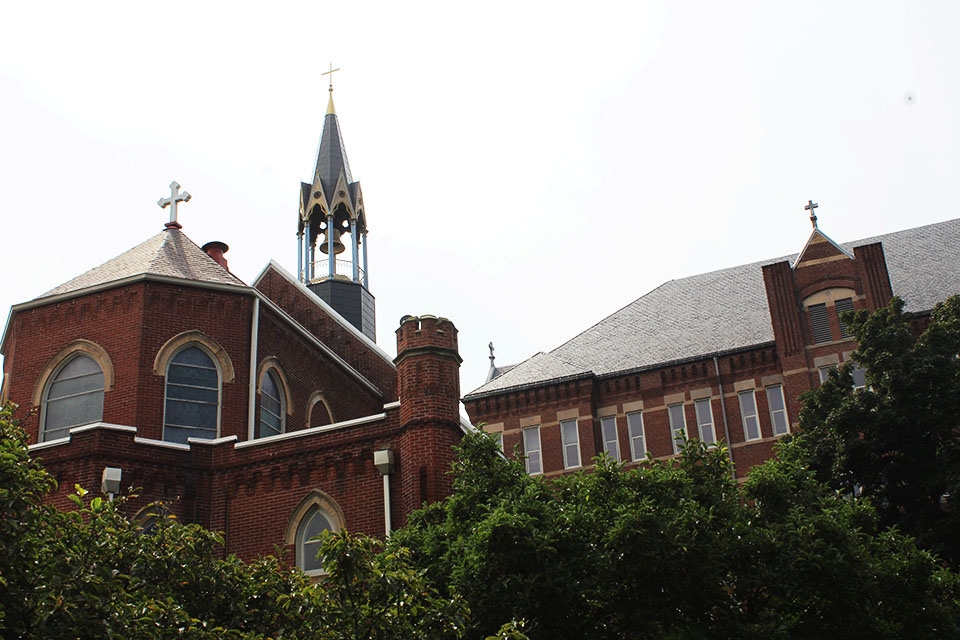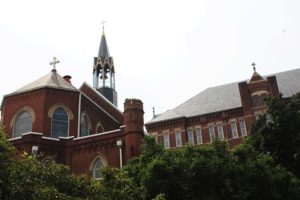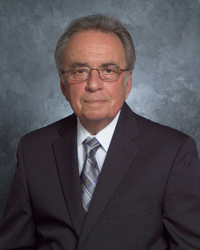
Old Main is home to many of Duquesne’s administrative offices. The university has bejun its preparations for the reaccreditation process which occurs every few years. Passing this review allows for Duquesne to continue to hand out degrees to grads.

Old Main is home to many of Duquesne’s administrative offices. The university has begun its preparations for the re accreditation process which occurs every few years. Passing this review allows for Duquesne to continue to hand out degrees to grads.
Sairah Aslam | Staff Writer
10/05/17
Duquesne is preparing for an important event: its re-accreditation.
In the United States, accreditation — the ability of higher education institutions to distribute degrees — is determined not by the government, but by independent commissions. All higher education institutions in each region of the United States are overseen by that region’s own organization. Duquesne University is overseen by the Middle States Commission on Higher Education (MSCHE).
The commission is required, according to Provost and Vice President for Academic Affairs Timothy Austin, “to visit every school [in its jurisdiction], at minimum, every eight years. They check everything: our buildings, classes, faculty, students … Then they determine whether the university is still qualified [to offer degrees].”
A tremendously significant process, re-accreditation — though mostly conducted behind the scenes — affects every member of the Duquesne community. Though the chance of the MSCHE withdrawing the university’s accreditation is as unlikely as to be negligible, the commission can still deem a department or division of the school as lacking in competency and may prescribe another review to take place a few years down the road.
“In the best case scenario… the MSCHE will hopefully hand us a clean bill of health for the next eight years,” explained Austin.
The re-accreditation process is undeniably a demanding procedure, with about 100 individuals involved overall. The first phase consists of a comprehensive self-study, in which the university evaluates its own capability to carry out its goals and mission statement.
Linda Kinnahan, a Duquesne English professor and one of the self-study co-chairs, explained the process.
“Duquesne is part of a group of universities and colleges undergoing the accreditation process following these seven new streamlined but comprehensive standards that deal with the following areas: 1.) Mission; 2.) Ethics and Integrity; 3.) Design and Delivery of the Student Learning Experience; 4.) Support of the Student Experience; 5.) Educational Effectiveness Report; 6.) Planning, Resources, and Institutional Improvement and 7.) Governance, Leadership and Administration,” she said.
For each standard, a working group comprised of 10-15 members focuses on demonstrating Duquesne’s competence and accomplishments regarding that standard in a written report, using statistics collected by, for example, the Office of Institutional Review, among other resources to prove the university’s competency in adhering the standard.
A working group is also assigned to work on the Requirements of Affiliation, a provision separate from the above standards. Once all of the reports have been completed, the working groups submit them to the co-chairs of the self-study, who then merge, streamline and fact-check the reports.
In total, Kinnahan said, “The development of the formal self-study will involve two years of focused research and writing (from January 2016 to January 2018), followed by several months of continued review.”
The second phase of re-accreditation consists of the preliminary (to take place in November) and formal review (to take place in the coming March) of the university by a team of 8-12 individuals assigned by the MSCHE to review Duquesne University’s competency in and adherence to carrying out its mission statement.
Considering the challenges of the task, it may come as a surprise that none of the working group members receive incentives to work on the reports. Yet, there is a benefit to contributing to the re-accreditation process, said Austin, also a co-chair of the self-study.
“Most of us live in fairly small silos. We know about our sport, our residence hall, our major, but we actually don’t know much about anything else,” Austin said. “You might wonder about the benefit of your piece if you work on the report, because not many people are actually going to read it. But by the end, you really learn an enormous amount about Duquesne as you write.”
Students, faculty, alumni, staff and board members are all contributors to the re-accreditation process and ensuring Duquesne can continue to serve its community, both as members in the working groups and as eligible commentators of the self-study report.
Kinnahan said that responses can be submitted online to middlestatesfeedback@duq.edu. Two forums open to the Duquesne community are scheduled for Tuesday, Oct. 10 from 2-4 p.m. and Wednesday, Oct. 11 from 9-11 a.m. Both sessions are in the Africa Room in the Student Union.



